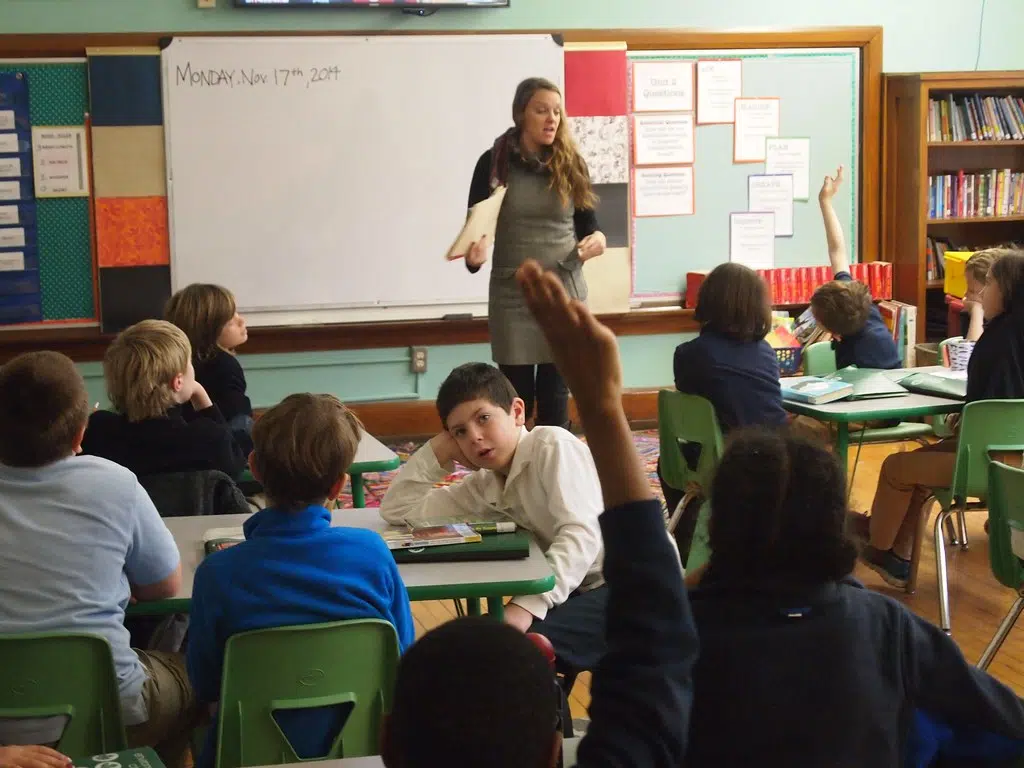New Brunswick teachers should get a 15 per cent wage increase over five years, according to a conciliation board.
The six-page report, dated July 17, was made public by the New Brunswick government on Thursday afternoon.
It comes as the province and the New Brunswick Teachers’ Federation (NBTF) attempt to reach a collective agreement before a late August strike vote deadline imposed by the union.
The conciliation board is suggesting a two per cent increase for each of the first two years, followed by three per cent in the third year and four per cent in years four and five.
The agreement would be retroactive to March 1, 2021, which was when the most recent collective agreement expired.
How did the board come up with its recommendations?
In its report, the conciliation board said it considered the “current economic climate” and “high levels of inflation” when making its recommendations.
“Our recommendations do not fully offset the impact of extraordinary inflation on teachers’ wages,” said the report.
“At the same time, however, it is important to stress that teachers must not be subsidizing the province’s treasury through substandard wages.”
The board also made note of the current challenges facing the province when it comes to recruiting qualified teaching personnel.
More than 1,000 local teachers’ permits were issued for individuals without a teaching certificate or an interim teaching certificate in 2021, it said.
“This shows there is a shortage of qualified personnel because, under regulation, these permits may only be issued where the school district is unable to hire qualified teachers,” said the board.
The anglophone sector also recorded 1,000 unfilled absences in January and February of this year, meaning no substitutes were available to take that teacher’s place.
When coming up with its recommendations, the board said it also considered what teachers make in other Atlantic Canadian provinces.
“The evidence establishes that New Brunswick teachers in the early stages of their careers are paid less than their counterparts in other Atlantic provinces,” said the board.
“Moreover, general economic increases will be important to ensure that salaries for all New Brunswick teachers remain competitive.”
What happens next?
The conciliation board’s report is non-binding, meaning neither side has to follow the recommendations. Both sides have seven days to review and respond to the report before any further action.
On Wednesday, the province’s finance minister said they agree with the report and its recommendations.
“We believe this is a fair, reasonable proposal and have communicated to the federation our desire to see a resolution for our teachers, students, and staff as soon as possible,” Ernie Steeves said in a news release.
Steeves said the government has reached out to the federation to resume discussions. The NBTF has not yet responded to the report.
The federation has previously said it wants to see compensation and working conditions that are reflective of today’s realities.
It said the two per cent annual increase that had been offered by the province did not consider current inflation rates and would not address recruitment and retention issues.
The federation issued a 100-day strike countdown which began on May 20. A strike vote will be held if a tentative agreement is not reached before Aug. 28.
But co-president Connie Keating said they are committed to finding a solution at the bargaining table and not on the picket lines.








